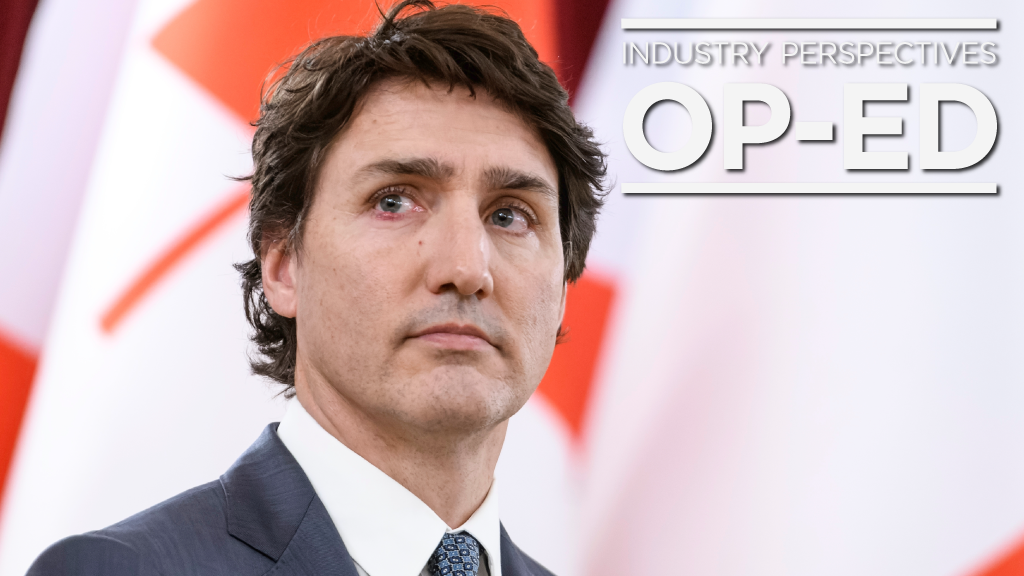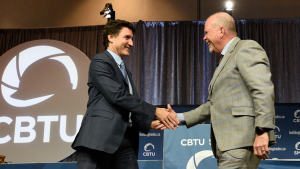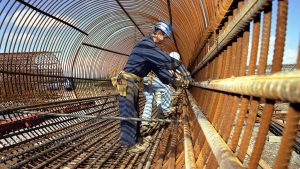Earlier this year, public opinion research company Leger published the results of a nationwide poll.
One result stood out. Seventy per cent of Canadians agreed with the statement: “It feels like everything is broken in this country right now.”
To young people, families and business owners struggling to buy or stay in a home, find a doctor, pay for gas and groceries, hire people, worried about how unsafe our streets have become, or having to navigate a never-ending web of red tape to get projects approved, a deep sense of helplessness has set in.
Over the past few years, Canada’s long slow decline has become the subject of an avalanche of scrutiny and by every measure of social well-being and economic competitiveness, Canada is coming up short among its global peers. Canada’s ability to generate opportunities and long-term prosperity for its people is now at serious risk.
But anyone reading the ninth budget of the Justin Trudeau government looking for some relief from the big challenges that Canadian families and entrepreneurs are facing, will come away sorely disappointed.
It seems every day there is a new report telling Canadians what they already know – buying or staying in a home has never been harder in this country. Just last week, RBC reported it is the “toughest time ever” to afford a home and that the share of household income needed to cover ownership costs is now 64 per cent in Canada and an almost inconceivable 106 per cent in Vancouver and 85 per cent in Toronto.
CMHC estimates we need to build 800,000 homes a year between now and 2030 to meet demand, while CIBC says it’s closer to one million. Keep in mind that in 2023 we built about 230,000 new homes.
With the shortage of people across every part of our economy now acute, a central question asked by many is who will build all these homes?
Our labour markets are undergoing a seismic shift – absent immigration, our population is flat-lining and will start to decline. Indeed, in B.C., in 2022, for the first time ever, natural births exceeded natural deaths…and it happened again last year.
Part of the answer is immigration. However, our immigration system is failing us. Last year we added a city the size of Calgary to our national population, and we are on track to do the same in 2024.
Two major challenges have emerged. First, we have failed miserably to assess the skills gaps in our economy – doctors, nurses, technicians, teachers and trades workers – and attract them to Canada.
Case in point: only two per cent of all permanent immigrants in 2023 will pursue a career in the construction trades.
Second, the torrid pace of our population growth is crushing affordability and overwhelming the infrastructure in our major centres.
In 2021 there was a total of 1.3 million non-permanent residents in Canada; today we have 2.6 million. We must find a better balance, attract the people with the right skills to power our economy and in numbers that our schools, hospitals, transit systems and housing stock can reasonably absorb.
Canada has a remarkable competitive advantage in its natural resources – energy and minerals in abundance and in high demand. And, harnessing them provides some of the highest paying jobs in the country.
Budget 2024 offered barely a passing reference to this enormous potential for Canada. No one should be surprised.
Leaders from Germany, Japan and Greece have visited Canada and received the diplomatic equivalent of a cold shoulder at the suggestion Canada supply their economies with much needed energy.
One federal minister stated Ottawa is “not interested in funding LNG projects.” He missed the point completely. No one was asking Ottawa to fund anything; they simply want Ottawa to get out of the way.
Finally, last year, the CD Howe Institute reported that for every dollar that an American business spends on training, technology and capital – the essential ingredients for innovation – a Canadian company invests 58 cents.
Business investment in Canada from 2015 to 2023 ranked 44 out of the 47 most advanced economies, according to the OECD. This matters because the more innovative Canadian firms, the more they spend on upskilling their people and on adopting new technology, the more they can increase the size of paycheques for workers.
Canada’s lagging productivity is to the point where the deputy governor of the Bank of Canada said, “You know those signs that say, ‘In an emergency, break the glass?’ Well, it’s time to break the glass.”
After reading the budget it’s hard not to come away with the feeling that Canada is not a serious country, and the Trudeau government is incapable of addressing the big challenges facing the country.
Why do so many people feel like everything in this country is broken? Because so much is breaking all around us.
Chris Gardner is president and CEO of the Independent Contractors and Businesses Association. Send Industry Perspectives Op-Ed comments and column ideas to editor@journalofcommerce.com.












Recent Comments
comments for this post are closed